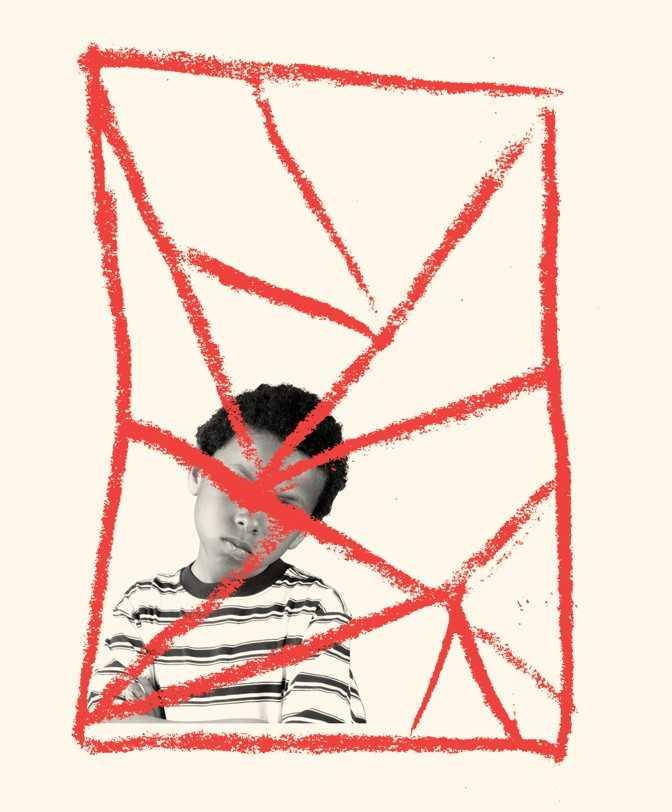What Happened to American Childhood?
Curated from: theatlantic.com
Ideas, facts & insights covering these topics:
14 ideas
·6.83K reads
19
1
Explore the World's Best Ideas
Join today and uncover 100+ curated journeys from 50+ topics. Unlock access to our mobile app with extensive features.
A Child's Mental Health
Various studies conducted in the U.S. population indicate growing anxiety towards a possibly grim future. Political turmoil, gun violence, global plagues, changing power structure and a widening rich-poor divide make us believe in a future that is more stressful and complicated than the present.
Our children are the most vulnerable. Depression cases among the young are climbing since the 90s. Suicidal cases among 10 to 24-year-olds have risen 56 per cent from 2007 to 2017.
154
726 reads
Antidepressants And Opioid Epidemic
Pharmaceuticals are playing a major role in the deterioration of mental health among young people. There is a link between teen suicidal thinking and antidepressant use, along with a link being seen in actual suicides among the young and the use of opioids in their families.
132
528 reads
Smartphones and Social Media
Across age groups, social media is potentially hazardous, with its tendency to amplify the social divide.
There is a strong relationship between anxiety/depression and the use of smartphones, particularly social media usage among kids, though the data also seem to show the positive effects of staying connected with their peers. Online distractions also make youngsters give up their offline life, leading to isolation and further depression.
154
529 reads
The Problem
.. according to many experts, starts with anxiety at early childhood. Various studies have seen a steep rise in anxiety at a young age, making it a topic of music, books and even memes. A bit of stress and anxiety is still ok if it is prevented from being turned into an anxiety disorder.
133
496 reads
The Symptom: Dropping Out
Many growing children, facing a multitude of problems in school are avoiding school or have dropped out completely, refusing to go. This is an alarming trend as it risks profound distress and failure of a ‘launch pad’ towards life, leading to even more depression and anxiety.
130
402 reads
The Crisis That Concerns All
The acute mental health problems of youngsters concern everyone, and even the ones taking care are themselves victims of extreme stress. This is leading to a vicious cycle of stress across all ages.
126
344 reads
The Seeds Of Anxiety
Studies show that anxiety and phobias among children start at age four, and by age eleven, a child can have many anxiety and related disorders. Introverts tend to suffer a lot more, becoming deeply scarred with the hurdles and humiliations of life. This is due to a competitive environment, compounded by the rising cost of living and peer pressure to be successful.
155
403 reads
Cognitive Behavioural Therapy(CBT)
.. works as a treatment for anxiety, using ‘cognitive reconstructing’ in young adults(when they are motivated to cooperate), with a 60 per cent success rate, but the benefit isn’t long term if the treatment is stopped.
139
470 reads
SPACE
.. which is short for Supportive Parenting for Anxious Childhood Emotions, takes the indirect approach of treating the parents or caretakers, with the same success ratio.
The SPACE approach of treating parents does not blame the parents but at the same time, shows the correlation between the kid’s anxiety and parents behaviour. Their aim is to reduce parental supervision and let the children stem out on their own.
140
668 reads
The Anxious Parent
Modern parenting is now being seen as hyper, overprotective and too vigilant, and yet the results are counterproductive, with more kids needing therapy. Certain parental impositions and lack of providing any space to move may be hampering the kid’s growth.
Another factor is the infectious(!) nature of anxiety, along with it being hereditary, at least partially. Treatment of the parents mental disorder(s), in many studies has shown an improvement in the child as well.
163
477 reads
Bubble-wrapping your Child
A study showed that children put in day-care, being away from their parents, and interacting with kids their own age, opened up and were psychologically healthier than those who were always with their parents.
Not surprisingly, it is the parents’ adverse reactions and anxiety attacks in response to their children’s behaviour, which is compounding the problem. The ones who are able to endure their children’s discomfort, and not go hyper, become resilient and cope well in the long run.
146
435 reads
Gender Trouble
Risk factor for anxiety disorders is far greater in females, of all ages. They also tend to cling to the mental disorder for a longer time. This is due to girls being over-protected from an early age and not developing any personal competencies.
139
474 reads
Smartphones For Kids
Kids are getting smartphones and tablets at an early age due to the parents wanting to keep them occupied(games and Youtube Videos)and also wanting to track them all the time.
An increasing digital life fueled by technology is making kids refuse to go to school and even lead to a ‘failure to launch’, that is becoming dependent on their parents by not working.
Limiting the kid’s technology access actually makes them better at living their lives, as it gives their brain time to think and not be hooked to a TV/Phone/Video Game/Tablet.
153
389 reads
Take Care Of You
A healthy life, with plenty of sleep, exercise, and social activity contributes to the psychological health of the parents as well as the kids.
With the therapy aimed at kids(like CBT) being out of reach of many and also being a temporary treatment, parents who have to create the right conditions to promote the children’s mental health, and more importantly, for their own sanity.
139
492 reads
IDEAS CURATED BY
Jade R.'s ideas are part of this journey:
Learn more about parenting with this collection
Improving sleep through mindful breathing exercises
Practicing stress reduction and relaxation techniques
Establishing a relaxing bedtime routine
Related collections
Similar ideas
4 ideas
Back-to-School anxiety: Ways to help your child cope
childrens.com
6 ideas
How to Avoid Passing Anxiety on to Your Kids
childmind.org
5 ideas
What Is Helicopter Parenting?
parents.com
Read & Learn
20x Faster
without
deepstash
with
deepstash
with
deepstash
Personalized microlearning
—
100+ Learning Journeys
—
Access to 200,000+ ideas
—
Access to the mobile app
—
Unlimited idea saving
—
—
Unlimited history
—
—
Unlimited listening to ideas
—
—
Downloading & offline access
—
—
Supercharge your mind with one idea per day
Enter your email and spend 1 minute every day to learn something new.
I agree to receive email updates




